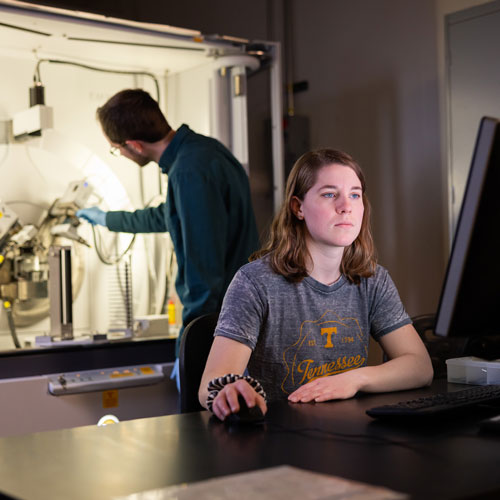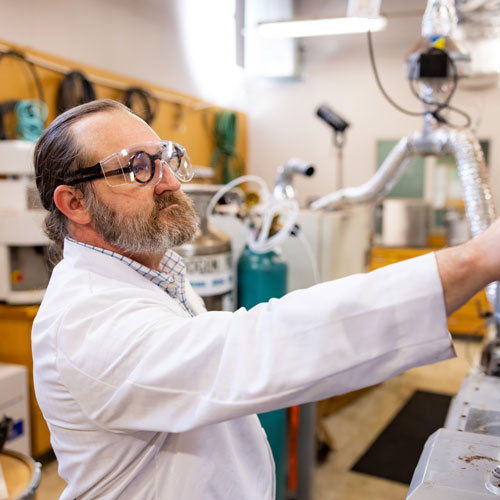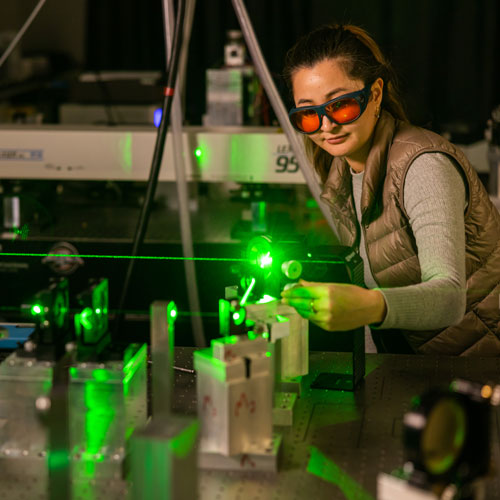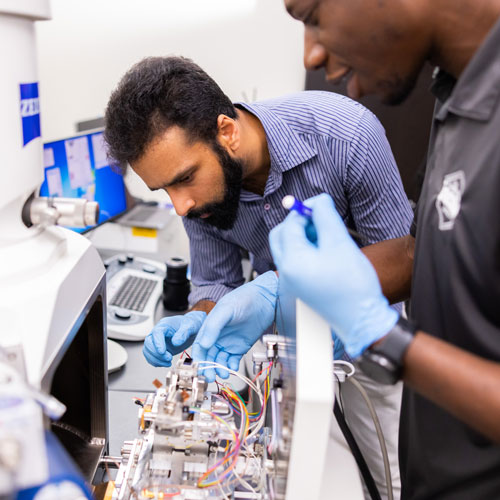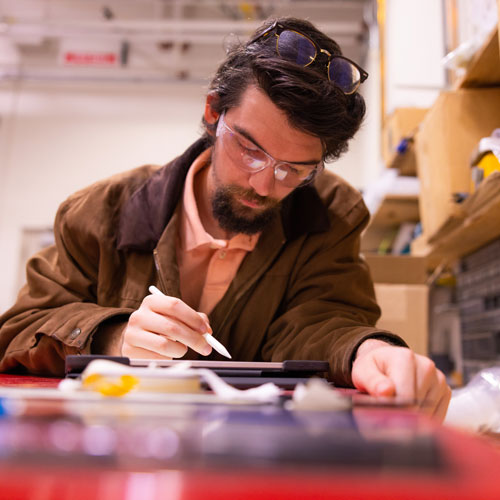The Department of Materials Science and Engineering is dedicated to becoming a world class facility for the most recent technological developments in materials for energy applications, advanced structures, electronics, optical, computing, and magnetics, as well as nanomaterials, polymers, and Biomaterials.
Our research facilities include state-of-the-art instruments for materials synthesis, structural characterizations, and functional characterizations. Partnerships between graduate students and faculty create exciting and productive research in our four major research areas which include:
- Functional Materials
- Quantum Materials
- Structural Materials
- Computational Materials Science & Machine Learning
Our strong ties to Oak Ridge National Laboratory, the Institute for Advanced Materials and Manufacturing, the Center for Materials Processing, and the Scintillation Materials Research Center, as well as our involvement in many high-tech partnerships, make us a premier choice for students on a journey to materials science and engineering careers world-wide.
Research Areas
Research Area
Functional Materials
Functional materials are at the heart of technological advancements, with their extraordinary ability to respond to external stimuli such as temperature, pressure, electric or magnetic fields. They’re the building blocks of sensors, actuators, and energy devices.
Research Area
Quantum Materials
Quantum materials are the playground for observing and utilizing the quirky, often counterintuitive properties of quantum mechanics. These materials are the key to next-generation electronics, superconductors, and quantum computers.
Research Area
Structural Materials
Structural materials are the backbone of engineering, defining the strength, durability, and resilience of everything from buildings and bridges to airplanes and automobiles.
Research Area
Computational Materials Science & Machine Learning
Computational materials science is the frontier of predicting and simulating the properties of materials using quantum
mechanics, thermodynamics, and kinetics. Machine learning meets materials science through the accelerated pace of materials discovery using predictive algorithms, harnessing the power of data in shaping the future of materials.
Cutting-Edge Facilities
Explore some of the facilities available for students and faculty of MSE.
